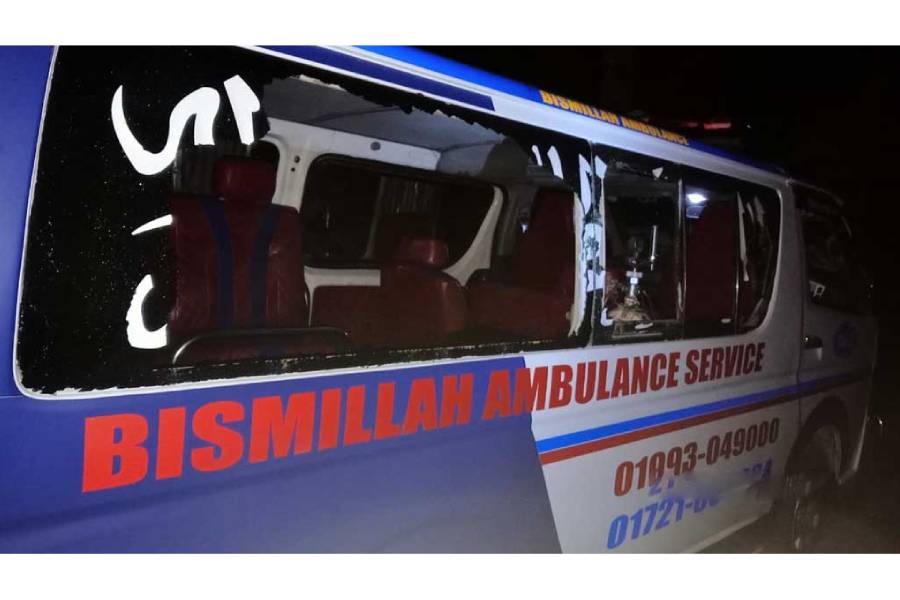
Published :
Updated :

Highway robberies have ever remained a problem in this country. A number of rape incidents on running buses added a new dimension to the highway crimes. Of late, both robbery and sexual violence against women passengers on moving buses made some screaming headlines. But the administration has not set in motion its forces with a sense of urgency either to protect passengers in vehicles on move on highways or nab the criminals who have already committed such crimes. This lax attitude on the part of the authorities sends a wrong message to the perpetrators of crimes.
Now comes the disturbing news that an ambulance carrying the body of a cancer patient and the mourning members of his family accompanying it released from a Dhaka hospital was attacked by dacoits at Nasirnagar, Brahmanbaria on way to a village under Purbabhag Union of the district. Not only were the members of the family of the deceased assaulted because they did not carry more than Tk 50,000 in cash and valuables other than nine cell phones, but also struck the corpse with indigenous weapons.
That an ambulance carrying a dead human body can be attacked for looting valuables is unimaginable. It defies the minimum sense of respect for the dead, religious customs and tradition irrespective of faiths and the barest consideration for the grieving people who have just lost one so close to them. This is sacrilege at its worst when even the deceased is struck with a stick or any weapon. Every religion, society and culture considers this an act of desecration or profanity.
Robbers are not expected to be guided by reasons, religious teachings and laws but they are after all human beings. Sure enough, not all of them are cruel and hardened criminals. There are instances where a group of robbers or its leader looted from the rich to help the poor. A representative of the Robin Hood archetype was bandit Veerappan who had his hideouts in the dense forests of Tamil Nadu, Karnataka and Kerala. Even some small acts of generosity by robbers or muggers in the past proved that not all of them sold their souls to the devil. For example, when these anti-social elements discovered after robbing their victims of their money and valuables that the latter had nothing left, they returned back money equivalent to the transport fare to the destinations.
Since the July-August uprising, the robbers and muggers seem to have turned more ruthless and violent in their treatment of their victims. The anger at and hatred for common people they find under their control are visceral. They unleash cruelty and violence on their victims indiscriminately. An epidemic of social antagonism seems to have influenced their behaviour. True, social inequality and a lack of employment together with termination of more and more workers have pushed some to such desperation. If violence breeds violence, so does the breach of social contract such as sacking of workers or employees at short notice. When they find no alternative jobs or self employment, some are likely to grow desperate. There were reports of such fired employees taking their own lives. In a few tragic cases, the couples killed their children before bringing an end to their own lives.
On the other side of the story, some joined gangs of thieves, muggers and robbers in order to eke out a living. Clearly, the hopes and aspirations of such people have been dashed. Many of them joined the uprising hoping for a change in their abject living conditions but nothing changed. Only the professional and organised groups pressed for their coterie interests---some successfully others failing miserably. Either way, it is those common and innocent people at the bottom rung of society who have no organisation and no nuisance value on the city streets are further discriminated against at a time when the country is in an economic turmoil.


 For all latest news, follow The Financial Express Google News channel.
For all latest news, follow The Financial Express Google News channel.